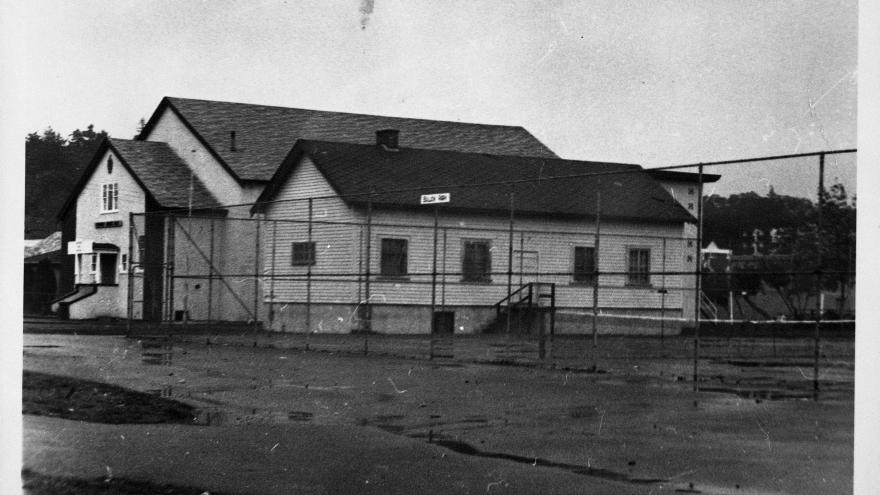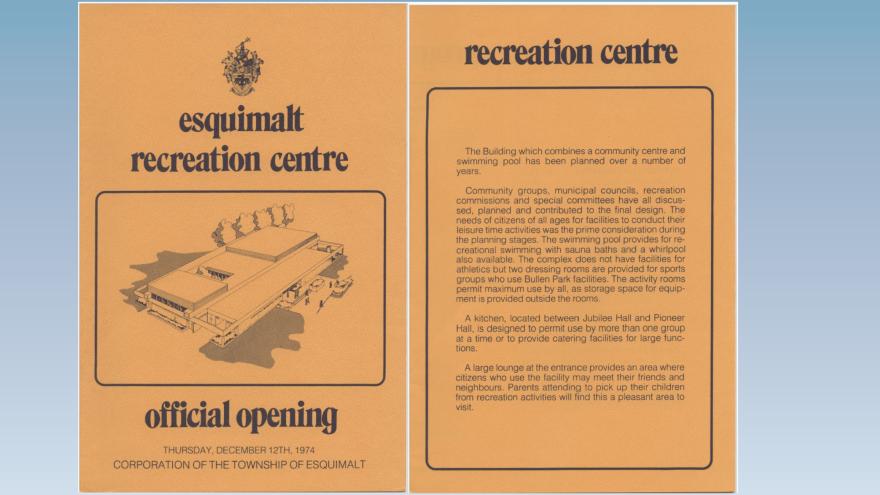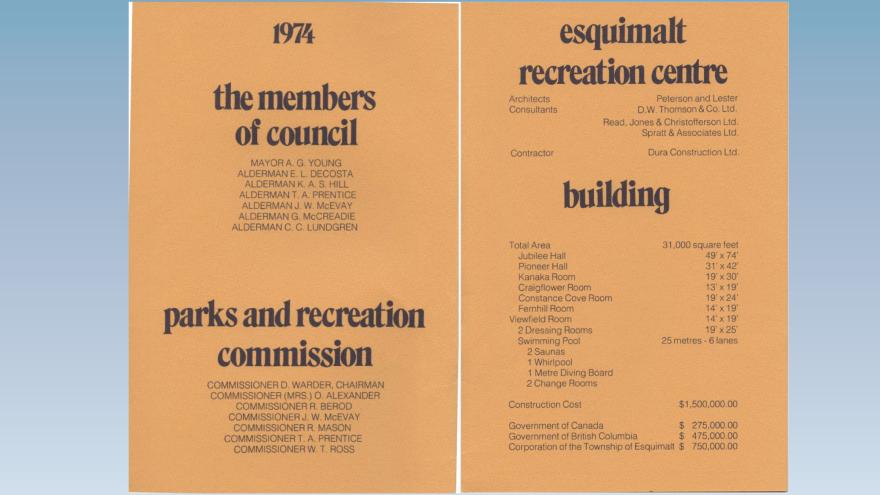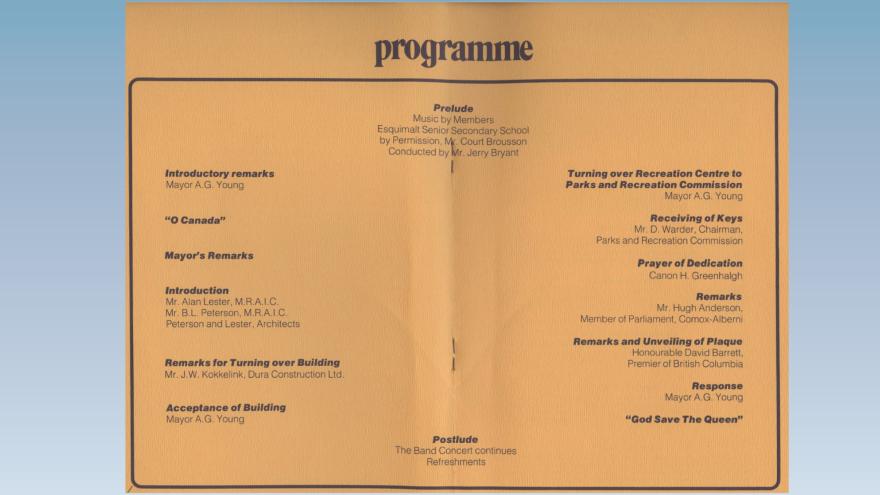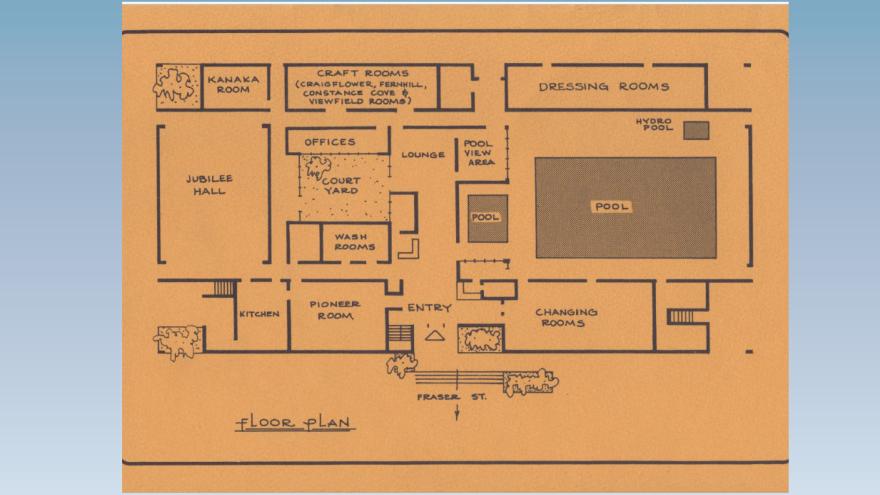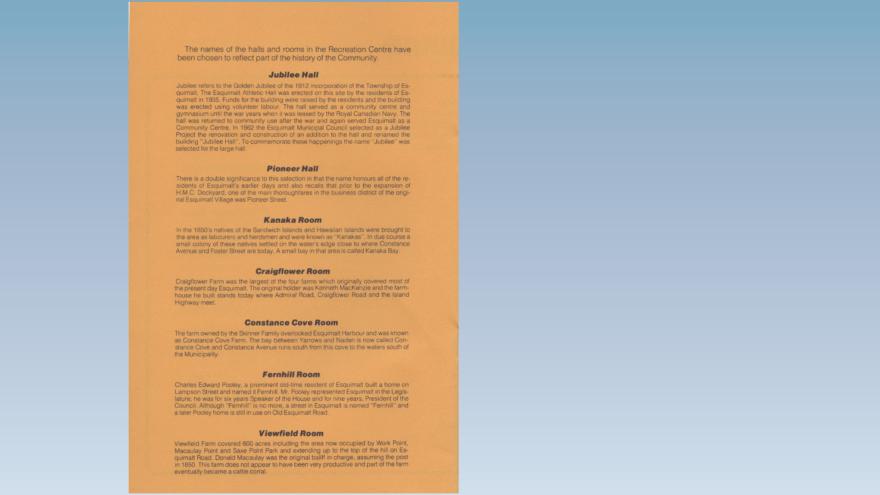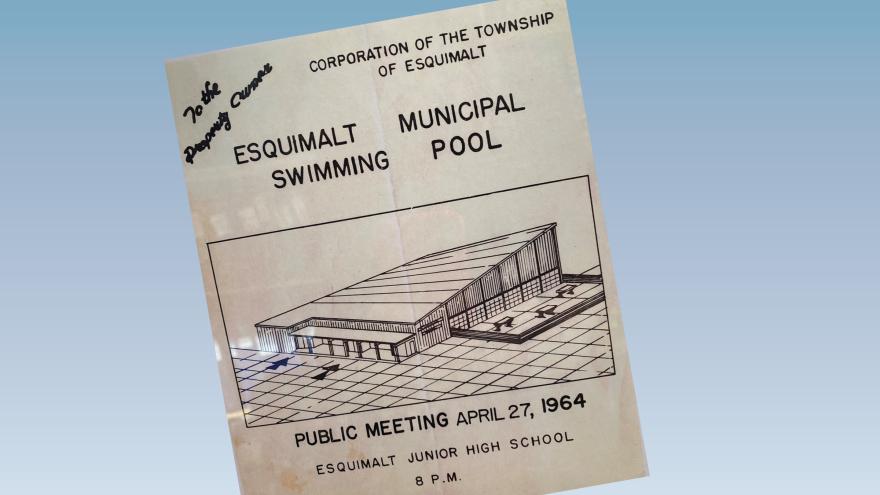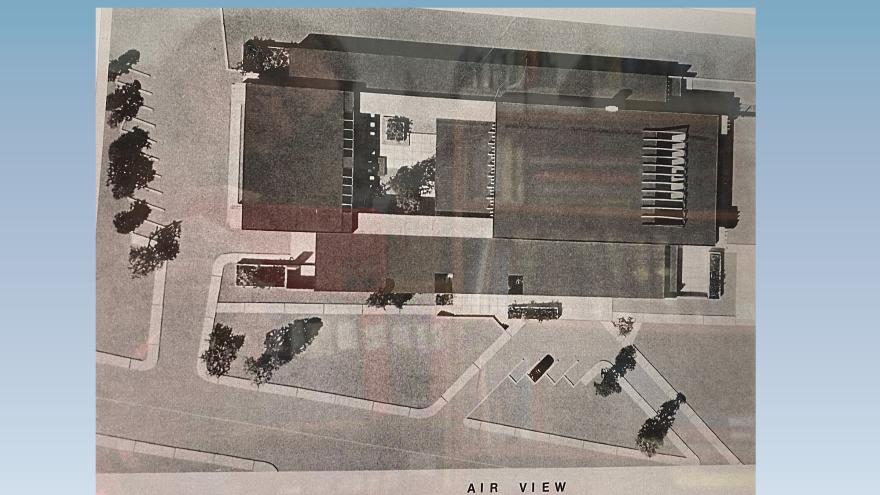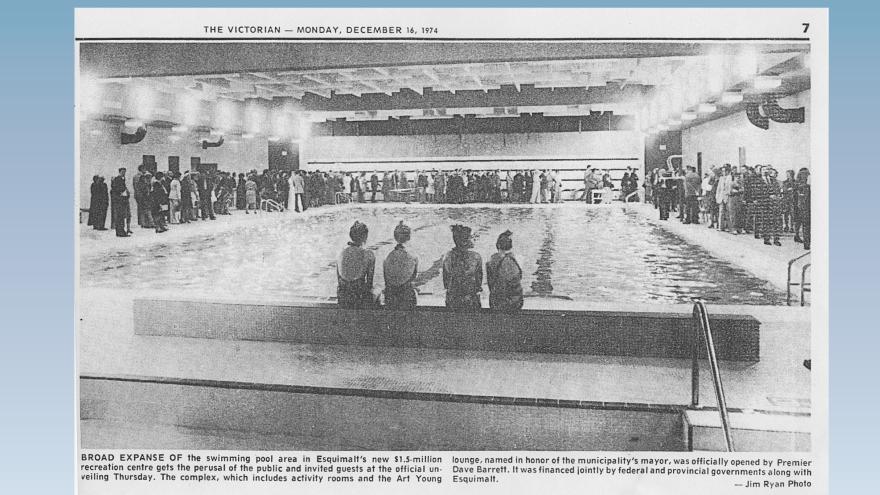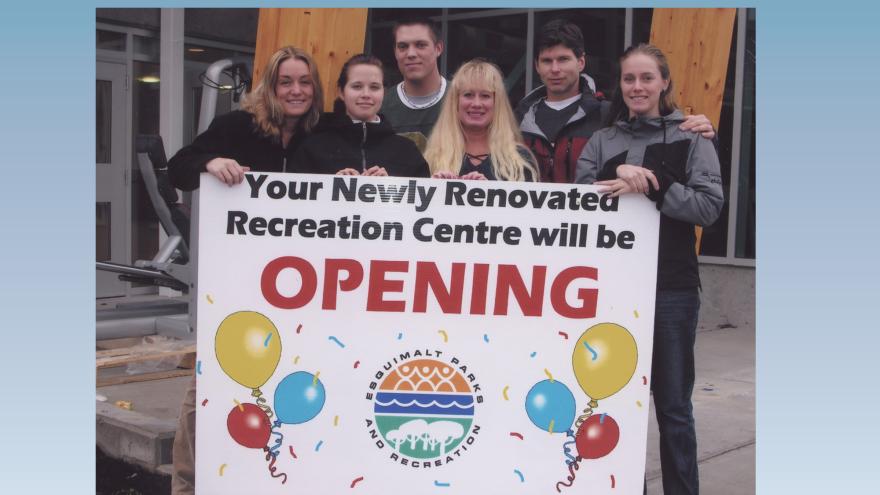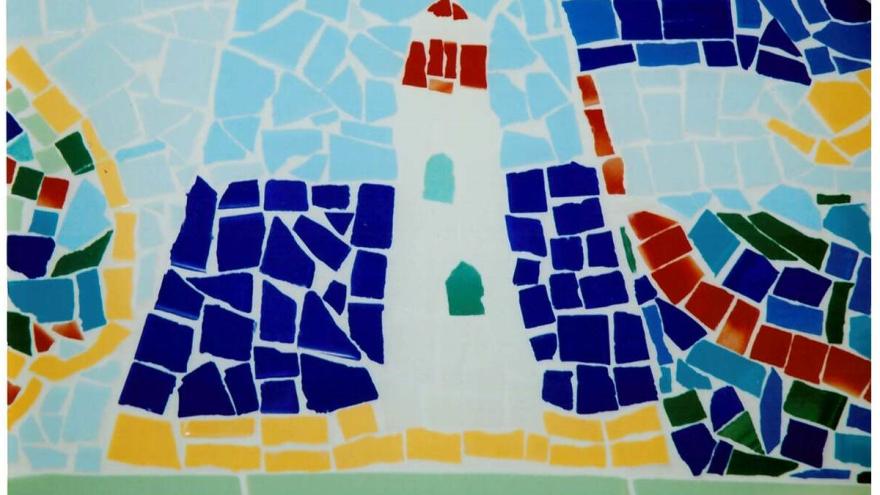The name “Esquimalt Recreation Centre” was first used in 1949 for a commercial enterprise at 1225 Esquimalt Road, a cement block building offering 5-pin bowling, table tennis and shuffleboard. Billiards were added in 1965. The building had numerous owners, and finally was known as Wilson’s Bowladrome. Demolished in 2002, it was replaced by the Municipal Hall.
Planning for the new Recreation Centre on the site of Jubilee Hall began in 1962, and with construction beginning in 1973 (supported by federal and provincial grants as well as municipal funds) it opened in December 1974 (see the event pamphlet). The amenities included a pool, sauna and whirlpool, a community centre, meeting rooms, and a lounge area.
At the 20th anniversary celebration in 1994, Ron Aubrey, aquatic coordinator, remarked that the Recreation Centre “was one of the first facilities of its kind and its state-of-the-art design attracted recreation buffs from all over Greater Victoria.” It was one of the first facilities in the province to be fully accessible.
In 2002, after a lively campaign leading up to a referendum, community members voted 90 per cent in favour of a revitalization project. This resulted in an expanded aquatic centre, a lifestyle pool, a fitness centre, a gym expansion, and new facilities for children and seniors. The Recreation Centre reopened in 2005 (see the event pamphlet).
Find these photos and more at Esquimalt Municipal hall in our foyer. The exhibit was assembled by the Esquimalt Archives team of staff and volunteers.
Come see the exhibit to learn more
Jubilee Hall, ca. 1960
In 1930, the Esquimalt Athletic Association raised funds for a hall at 521 Fraser St., and the Esquimalt Athletic Hall was built by volunteer labour. It was used for sports and community events. In 1962, it was refurbished and renamed Jubilee Hall, in commemoration of the 50th anniversary of the founding of Esquimalt. It was demolished in 1973 and replaced by the Esquimalt Recreation Centre.
Decorative tiles in the pool area, installed 2004
The ceramic tiles in the pool area were made by Bread and Butter Tiles, of Victoria. The company website describes the process:
“B&B tiles are completely handmade. The clay comes from quarries in Alberta, B.C., Canada and Washington State, U.S.A. The clay is rolled, cut, carved, pressed, trimmed, and glazed by hand. Glazes are made from various powdered materials then weighed, mixed, sieved, and applied in a variety of techniques. The tiles are then fired in an electric kiln to cone 1 (1154°C) creating a vitreous earthenware that is functional and durable.”
See more pictures of the pool tiles
Image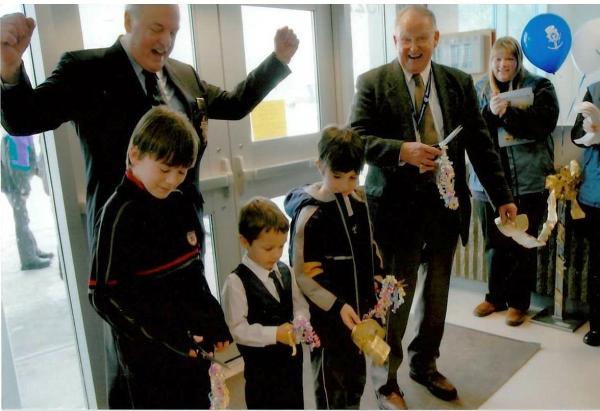
Boys helping to cut the ribbon at the 2004 reopening, with Mayor Darwin Robinson. Jordan Bendall of Rockheights School, John Gale of Lampson St. School, and Ethan Powley of L’École Macaulay School
This exhibit was prepared by volunteers at the Esquimalt Municipal Archives. Contact us at archives@esquimalt.ca, or visit us at #103, 1249 Esquimalt Road, Tuesdays 1.00 pm to 4.30 pm, Wednesdays and Thursdays 8.30 am to 4.30 pm.

